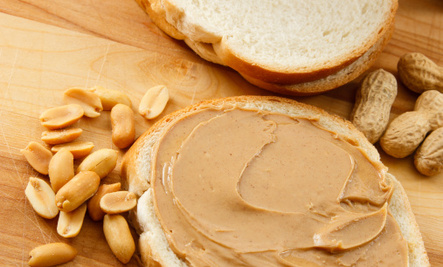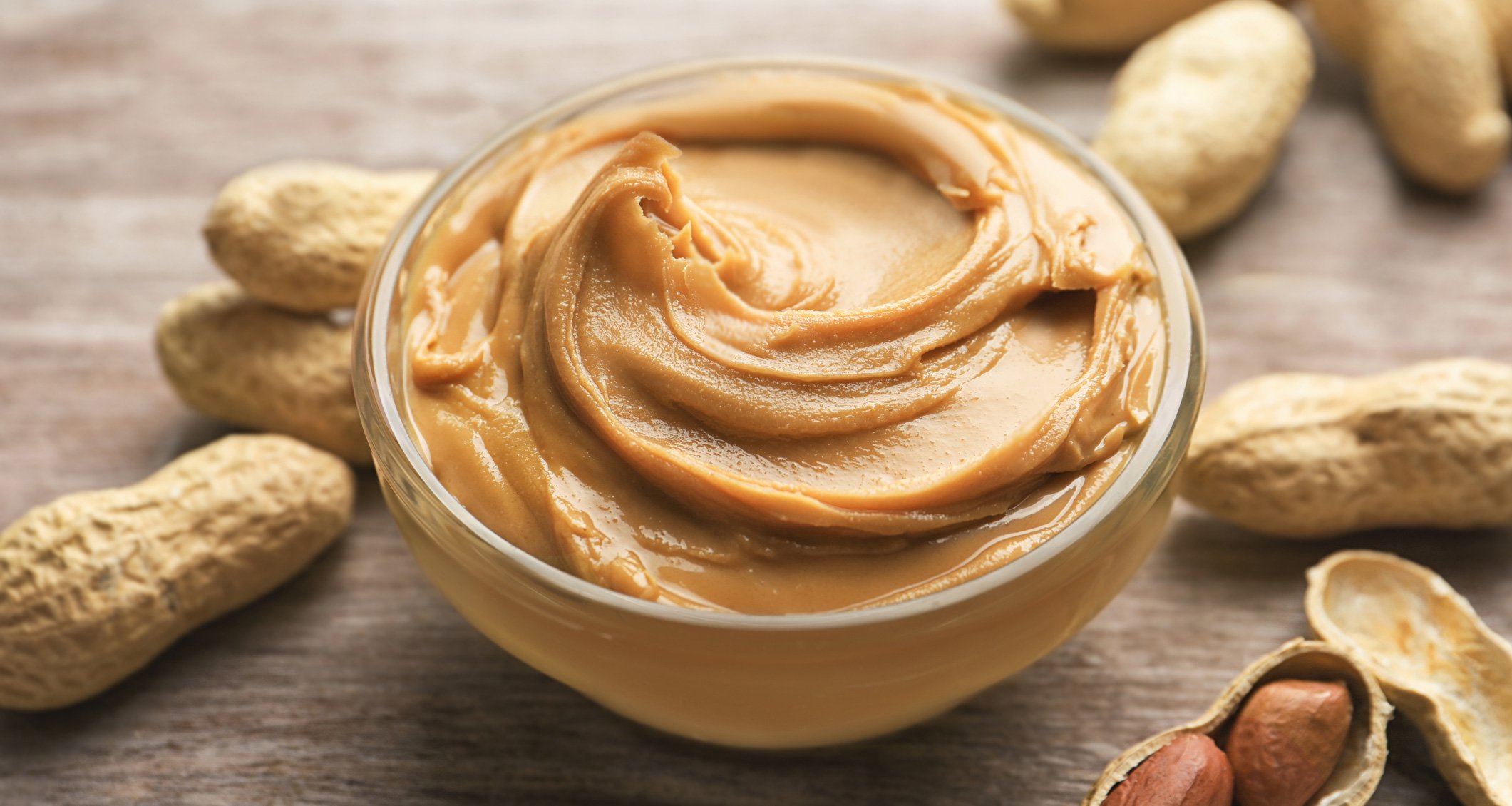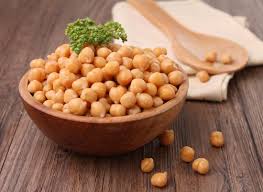Peanut butter is something that we all have been eating since our childhood. It is that one ingredient that goes well with almost everything; be it toasts, fries or burgers, peanut butter tastes great with all! Peanut butter provides with a lot of nutrients as it is packed with the goodness of proteins, carbohydrates and vitamin E. If you're bored of having peanut butter in its regular form and wish to experiment with the same, then here are 5 amazing combinations that you would definitely love to try. Have a look at them:
1. Peanut Butter Salad: If you happen to be a salad lover, then here's an exciting new addition to your salads - peanut butter. Move over those regular dressings and toppings like mayonnaise, mustard sauce etc. and experiment with peanut butter instead. You have to follow the same recipe as earlier for your regular salad but instead of mixing mayonnaise into it, you may add 2 tablespoons of peanut butter for an extra punch.
2. Peanut Butter Fruit Cups: Having a regular bowl of fruits in the morning is too mainstream. Here we have got some addition to it! Take some dry fruits, fresh fruits, oats and add some peanut butter to it. Mix them all together. This fruit parfait is sure to provide you with a lot of nutrients.
3. Peanut Butter Quesadilla : Make peanut butter quesadillas for an amazing breakfast session. All you need is 2 ripped bananas, 2 quesadillas and a spoonful of peanut butter. Spread the peanut butter on the quesadillas and place the sliced bananas on it. Your healthy breakfast is ready to serve.
4. Peanut Butter Energy Bites: If you're getting late for work and have no time to eat an elaborate breakfast, then bring these peanut butter energy bites to your rescue! Take half cup of oats and flax seeds, 2 tablespoons of peanut butter and raisins. Mix all the ingredients together and make bite-sized balls from the same. Refrigerate them for one hour and enjoy on-the-go.
5. Peanut Butter Crackers: Move over cheese crackers and try peanut butter crackers instead! Take few crackers and spread a layer of peanut butter and jam on it. Enjoy the sinful bites!.
These were 5 different ways in which you can savour your favourite peanut butter. Let us know in the comment section below if you liked them!

Peanuts have been enjoyed during winters along with jaggery or gur in India for ages now. Roasted groundnuts are cracked open from their shells and popped into our mouths as we happily snuggle next to our space heaters. Peanuts can, however, be enjoyed during any season as a snack. The delightful and delicious peanut is technically a legume, but is consumed like a nut. It is added to a number of dishes to make them crunchy, including poha, pulav and even desserts like halwa. But peanuts have become notoriously unpopular, after health freaks started shunning them for being fat-rich. It is believed that eating peanuts daily may lead to weight gain. Celebrity nutritionist Rujuta Diwekar recently attempted to bust this myth by posting about the humble peanut on her Instagram page.
Diwekar, who has an impressive list of clientele including Bollywood actors Kareena Kapoor and Varun Dhawan, has been a staunch advocate for all local and desi foods, which she firmly believes we should be eating more of. In her latest Instagram post, Diwekar addressed one of the most common dilemmas of modern nutrition- is peanut butter healthier than eating peanuts? Rujuta Diwekar lamented the fact that people are opting for peanut butter more than peanuts and claims that the common belief that the former is healthier than the latter is a misconception promoted by manufacturers.
She wrote, "The priceless peanuts. A friend for all seasons, the peanut can be turned into a chutney, eaten roasted or boiled with namak or powdered to garnish your bhaji and koshimbirs. And of course squeezed into oil too. It's rich in proteins, essential fats and fat soluble vitamins. Essentially, it's a power house of nutrients for anyone who wants a strong heart, flawless skin or a good vibe." (sic)
Rujuta Diwekar talked about how biscuits have replaced the desi peanuts as a chai-time snack and have been packaged as peanut butter that is being promoted as healthy and sold to us as for a profit. She said, "As long as you eat the peanut butter we sell you as a morning snack, or as a pre-workout meal. Don't eat the nut straight, that way the farmer and the small trader will make some money, that's no good, that's fattening. Buy from us, we will process and package it as the ultimate fat burning agent, because the one thing that must get fat is the food industry profit." She added by saying that we should turn back to eating peanuts to reap their benefits.

Ginger is a root spice that is included in a number of dishes and desserts in cuisines around the world. Indians have a special affinity for this warm and pungent spice with a strong flavour. Most of our curries- both vegetarian and non-vegetarian start with frying a ginger paste with onions to add flavour to them. Ginger is also grated into that most favoured drink of the nation that fuels us on a daily basis- masala chai. Adrak waali chai has a separate fan base among the tea drinkers of India and with good reason- it is believed to be a remedy for a number of small and big problems like headaches, cold, stomach aches, cramps, etc. No wonder then that ginger is also highly valued in the ancient Indian system of medicine- Ayurveda- and is included in numerous home remedies and Ayurvedic concoctions.
But can this almost messiah-like spice turn villainous when consumed in excess? 'Everything is bad in excess' is one rule of thumb that one should follow in life and the same applies to diet and nutrition as well. Over-consumption of ginger may also lead to some health problems. If you are suffering from any particular chronic condition, then too, you might want to check with your nutritionist before adding ginger to your diet.
Given below are some side-effects of ginger that you must be aware of:
1. Excessive Bleeding During Menstruation
Ginger is considered a natural blood thinner. This is why some menstruating women may experience increased bleeding if they consume excessive ginger in their diets. This blood thinning action of ginger is due to the presence of the acid salicylate, which has anti-coagulation properties.
2. Hypoglycaemia
Ginger and ginger extracts have been known to help diabetes patients reduce blood sugar or glucose levels. This is due to the presence of the main active compound of the root- gingerols- which enhance the uptake of glucose into muscle cells without the need for insulin. Therefore, non-diabetics or people prone to low blood sugar levels may want to use ginger with caution.
3. Disturbed Digestion
Although ginger is said to be an effective home remedy for a number of gastric issues like heartburn, gas and bloating, it may result in completely opposite symptoms if consumed in excess. Consuming over 4 or 5 gms of ginger per day may result in mild heart burn and may even trigger gas and bloating.
4. Low Blood Pressure
Ginger is said to be beneficial in regulating symptoms of high blood pressure or hypertension. However, when consumed in excess by people suffering from low blood pressure, it may further lead to a BP drop, exacerbating heart problems and leading to a number of unprecedented complications.
Although ginger is an intrinsic part of many of our lives, you may want to still keep your intake of the spice within the daily recommended limits, to avoid any of the above side-effects.

Our body requires a range of minerals and vitamins in order to function smoothly. Among some of the main essential vitamins that are important for the human body are Vitamins A, B, C and D. All these vitamins perform different functions inside our bodies and the deficiencies of these may result in a number of ailments, both mild and serious. From immunity to eye and skin health and even mental health, the presence (or absence) of these essential vitamins can control some of the most essential functions of the human body. These vitamins are mainly derived from food sources, both animal and plant-based and a diet is only considered healthy and balanced, when it contains adequate amounts of all these vitamins, along with minerals as well as the macro-nutrients- fats, proteins and carbohydrates.
What Is Vitamin A?
Vitamin A is one of the essential vitamins required by the body. It is fat-soluble in nature and is usually stored in the liver. The daily requirements for this vitamin can be easily met by consuming a number of vegetarian and non-vegetarian foods. There are two different types of Vitamin A- Preformed Vitamin A and Provitamin A. Preformed Vitamin A is also known as retinol and it can be used up directly by the body. Meanwhile, Provitamin A is also known as carotenoids, which, after being consumed, are converted to retinol in the body. Dairy products and poultry like eggs, milk, chicken, are rich in retinol. Meanwhile, carotenoids are present in vegetables and fruits. The Required Dietary or Daily Allowance for Vitamin A varies according to age of the person. Additionally, the RDAs for Vitamin A are especially prescribed for pregnant women, as well as lactating mothers.
Vitamin A Uses and Benefits
Despite being abundantly available in Vitamin A rich foods, one-third of the world's children under the age of five, suffer from its deficiency, according to a 2009 World Health Organisation's global database on Vitamin A Deficiency. This deficiency has also been known to be fatal to kids, and has also been held responsible for causing preventable childhood blindness, particularly in South East Asian and Africa (as per a 2013 report by the National Institutes of Health). Numerous scientific studies have pointed at the health benefits of consuming adequate vitamin A, as part of your daily diet.
Let's look at some of the important roles and benefits of consuming Vitamin A:
1. Eye Health
Vitamin A is responsible for maintaining eye health, as it converts the light entering our eyes into electrical signals that can be then interpreted by the brain. Additionally, Vitamin A is a component of the pigment rhodopsin, which is found in the retina of the eye and is said to be photosensitive.
2. Improved Immunity
A deficiency of Vitamin A can leave you to be vulnerable to a number of diseases and consuming it ensures that your body's defences are active. This vitamin is important for maintenance of the mucous lining in the eyes, gut, genitalia and the lungs, and it is also crucial for development of white blood cells that fight infectious diseases.
3. Fights Acne
Acne is a skin problem that involves severe breakout of pimples that are often painful and most often even leave scars behind. Vitamin A is said to prevent development of acne.
4. Healthy Bones
Vitamin A also supports bone development and health and a deficiency of this vitamin has been linked with poor bone health. Some studies have shown that people with low levels of Vitamin A in blood are susceptible to bone fractures.
5. Reproductive Health
Vitamin A is important for maintaining the reproductive health of both men and women, especially the latter by ensuring the proper growth and development of the embryos during pregnancy. Deficiency of vitamin A in an expectant mother's diet has been linked with birth defects in their kids.
Here are the best dietary sources of Vitamin A1 or retinol (Preformed Vitamin A):
1. Cod Liver Oil
One of the best sources of retinol is cod liver oil, which is commonly consumed in the form of supplements, which has 2000 per cent of the Daily Value (DV), as per the data by USDA.
2. Goat Cheese
This low-calorie cheese is also a rich source of Vitamin A. It contains 29 per cent of the DV (as per USDA data).
3. Liver
The livers of mammals like cow, lamb, pig etc. are incredibly rich in retinol and can be consumed as part of a non-vegetarian diet to meet requirements of the vitamin.
4. Blue Cheese
Another healthy cheese- blue cheese- is also rich in Vitamin A1 and contains 15 per cent of the DV (as per USDA data).
Here are the best dietary sources of carotenoids or Provitamin A:
1. Carrots
Carrots are popular among health nuts for its nutrient riches, among which Vitamin A is found in 104 per cent of the DV (as per USDA data).
2. Spinach
This extremely healthy low-calorie veggie is also rich in Provitamin A or carotenoids containing 52 per cent of beta-carotene (a type of carotenoid) by DV (as per USDA data).
3. Sweet Potato
This favourite food of the health freaks also contains good amounts of carotenoids- 283 per cent of the DV (as per USDA data).
4. Papaya
This fruit is important for liver and eye health and contains high amounts of Provitamin. It has 274 micrograms of beta-carotene (as per USDA data).
5. Mango
The king of fruits mango also reigns supreme when it comes to supplying your body with Provitamin A. The delicious fruit contains 21 per cent by DV of Vitamin A (as per USDA data).
Since Vitamin A is fat-soluble, it will be absorbed better by the body when consumed along with healthy fats. Animal-sources of Vitamin A may be more effective in fighting Vitamin A deficiency as they are also naturally rich in fats. For plant-sources of Vitamin A, make sure you add some amounts of healthy oils like olive oil, canola oil etc. to improve Vitamin uptake.

Chickpea or chana is one of the most celebrated vegetarian ingredients in the Indian cuisine. Chickpeas are nutritionally, very well endowed and are rich in two of the most important macro nutrients required for a healthy life and for keeping fit- protein and fibre. The middle-eastern dip hummus has been considered a gem by vegans and vegetarians for its incredible nutritional profile, most of which is due to the chickpeas in it. But nowadays, chickpeas are finding their way into more and more dishes around the world, all thanks to the fact that veganism has increasingly become trendy and cool.
One may understand why chickpeas are a treasured find for all vegetarians- they are full of good quality lean proteins, which may be hard to get from a largely plant-based diet. Legumes are also in the same protein-rich league. But chickpeas are also versatile and can be turned into a whole range of delicacies, which combine taste and nutrition. Commonly referred to as safed chana, chickpea is a plant-protein and that you may find an invaluable addition to your diet, especially if you are looking to load up on some much-needed protein.
Chickpea Nutrition And Values
The humble safed chana or chhola that Indians have grown up loving has a nutritional profile that seems to have been tailor-made for fitness freaks. A 100 gram portion of boiled chickpeas contain 9 gm of protein, 8 gm of dietary fibre and no cholesterol (as per data by United States Department of Agriculture). It also contains just 2.6 grams of fat, as well as good amounts of iron and magnesium (16 per cent and 12 per cent of Daily Value respectively). The same portion also contains 164 calories and is fairly filling as well.
Chickpea Benefits
Here are some well-known benefits of chickpea that is also known as the Bengal gram or Egyptian peas:
1. Weight Management
The presence of good amounts of protein and fibre means that chickpeas are suited for a healthy weight loss diet. Both protein and fibre have been known to promote satiety, curbing hunger pangs and helping in weight management.
2. Diabetes Control
Fibre in chickpeas has also been credited with better control over blood sugar and blood lipid levels as well as reduced insulin resistance. High-fibre diets are associated with lower risks of diabetes and high blood sugar levels.
3. Boosts Bone Health
Chickpeas are also said to help boost bone health, as they are rich in essential vitamins and minerals including calcium, magnesium, phosphorus as well as Vitamin K. All these micro-nutrients are important for the health of bones in the body.
4. Heart Health
A 2006 study, published in the Annals of Nutrition & Metabolism, linked consumption of chickpeas with reduction in levels of bad cholesterol or Low Density Lipoprotein (LDL). High cholesterol has been linked with poor cardiovascular health and so, consuming chickpeas may help in improving heart health.
5. Boosts Health of Nervous System and Liver
The presence of Vitamin B9 or folate in chickpeas makes it good for proper brain and muscle development as well as the smooth functioning of the nervous system and an optimal metabolism. It also helps in metabolisation of fat in the liver and ensures smooth functioning of this crucial organ.
Chickpeas have been known to aid digestion as well, due to the presence of fibre in it. So if you haven't been including chickpeas in your diet, then you may consider doing so for a healthy heart, brain and body.










